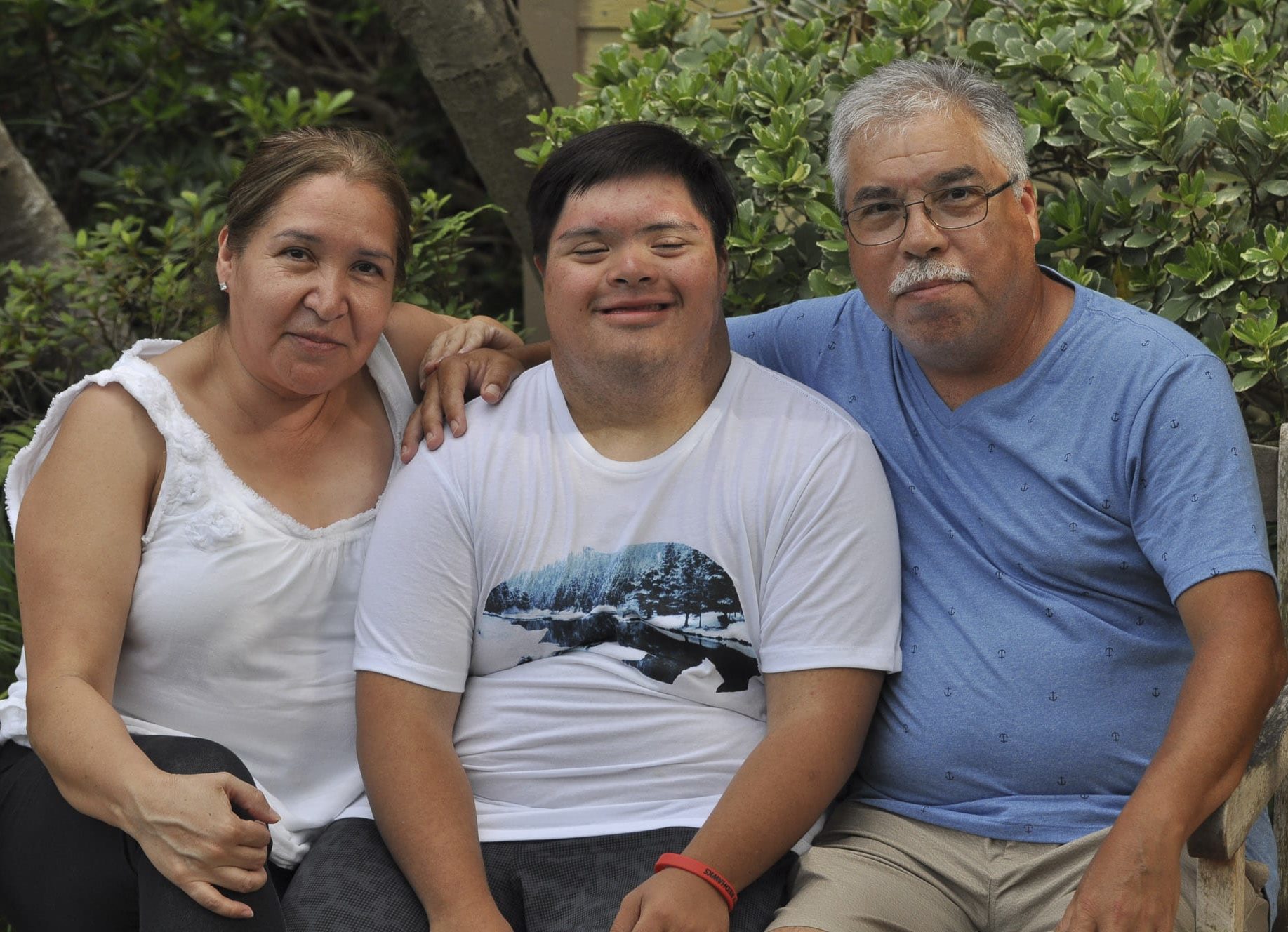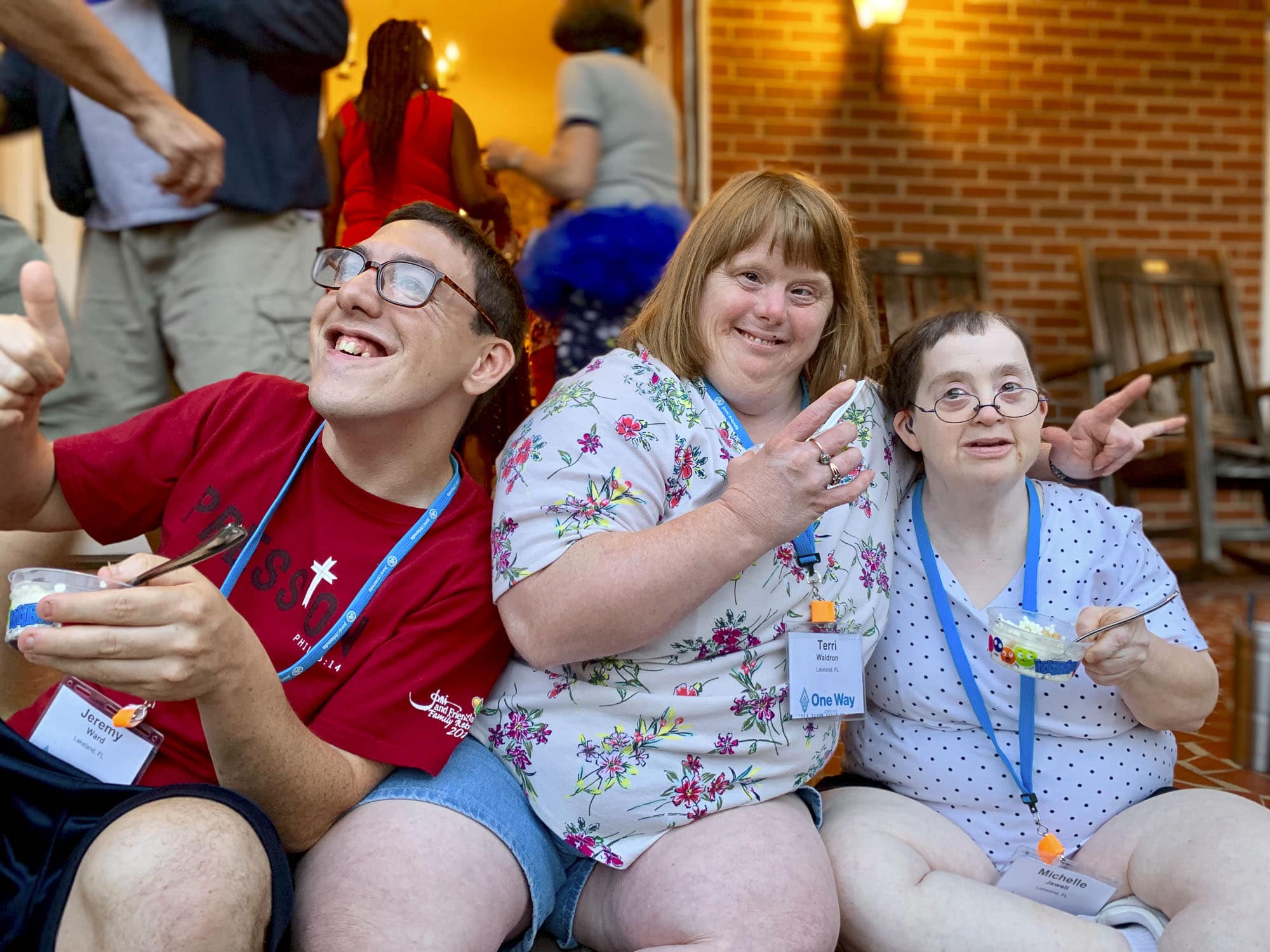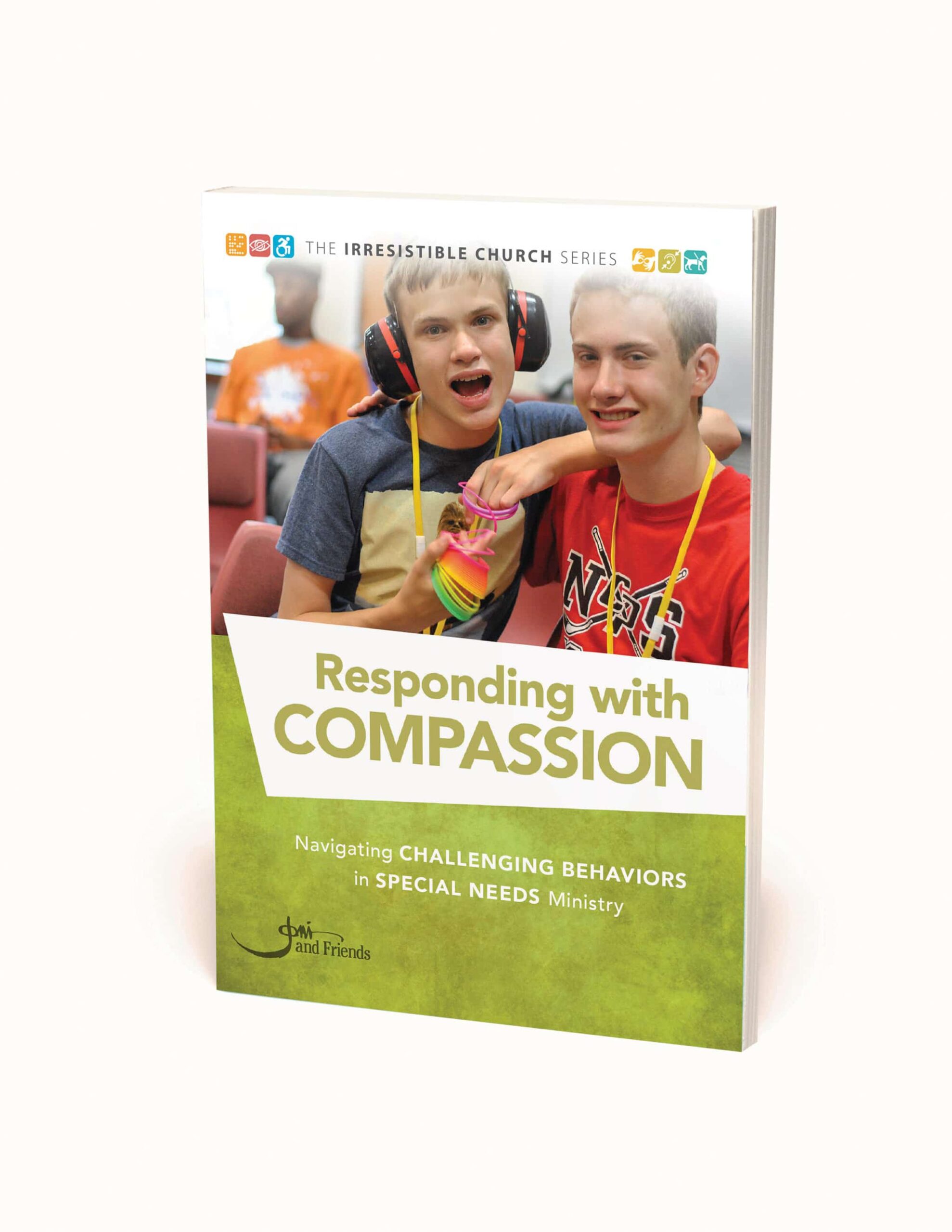How to Manage Challenging Behaviors from People with Disabilities

When we welcome people with intellectual and developmental disabilities into our churches, we invite the whole person.
This includes their personalities, their God-given gifts, and sometimes, their challenging behaviors. Perhaps you’re reading this today because you’re seeking a solution to an existing situation. Or maybe you’re apprehensive about opening your church to those with intellectual and developmental disabilities. Be assured: this is doable!
Managing challenging behaviors is simple, but not necessarily easy.

When someone’s response to a situation causes a behavior that is disruptive or harmful, having a plan for anticipating and redirecting this behavior allows ministry to continue in this person’s life.
And more than that, it enables entire families to find their place in the body of Christ.
There is no “silver bullet” to perfect behavior in any one’s life. But by understanding the reason behind a behavior, we can help those with intellectual and developmental disabilities succeed at church. When we know the cause, we can look for ways to promote more appropriate behaviors.
Though we can’t control someone else’s behavior, we can do things that make it easier for those in our church to do the right thing. Helping promote appropriate behaviors is a means to an end: the opportunity to hear the gospel, grow in Christ, and have fellowship with other believers. Behavior is often a key barrier to participation in the life of the church.
Though we are focusing on children’s behavior, these principles often apply to adults too.
The key is tailoring our communication to the chronological age of the person you are talking to, not their “developmental age.” That means talking to adults as adults and children as children.

Some keys to understanding behavior:
All Behavior is Communication
For every effect, there is a cause! Outside input like bright lights, loud noises, and disrupted routines may cause a particular behavior. As you get to know each individual you will likely notice patterns. Talking with parents or caregivers provides important information for determining the triggers that cause challenging behaviors. Challenging behavior may not be bad behavior but instead might be their way of saying, “I’m overstimulated and don’t know how to ask for help.”
Consistency is Essential
Individuals with behavioral issues may struggle to understand the flow of a weekly program. Walking around and talking are appropriate behaviors during free time, but inappropriate behaviors during a time of teaching. Keeping a consistent schedule helps everyone anticipate and prepare for what’s coming next. Reinforcement systems (rewards and discipline) should similarly be used with consistency. What might seem like bad behavior may actually be a misunderstanding of what is expected at a given moment. You might consider creating a visual schedule, using icons and pictures to help everyone understand the order of the service.
Overstimulation is Not Bad Behavior
Many individuals with autism have sensory processing issues, which can cause extreme reactions to things like fluorescent lights, loud noises, or strong scents. Sensory processing issues may also cause sensory seeking behavior, such as foot stomping, touching a certain texture, or chewing on objects. Rather than dealing with these behaviors as character issues seek first to address the sensory issue.
Some guidelines for easing overstimulation include…
- Limiting options to no more than 3 choices
- Changing activities every 5-10 minutes
- Keeping general noise levels to a lower volume
- Setting firm boundaries and sticking to them
- Offering sensory “breaks” in quiet areas
- Providing sensory fidget toys like prickly balls or Play-Doh during high concentration times, such as the story or teaching time.
What About Extreme Behaviors?
Volcanoes don’t erupt without warning. And yet, for those who aren’t paying attention, the explosion seems to come in an instant. Behavior doesn’t occur in a vacuum, either. Techniques for managing behaviors are meant to prevent “volcanic eruptions.” But sometimes the volcano erupts anyway.
What do we do when there is an extreme behavior?
Meltdowns
- Stay calm
- Create distance between the child and their peers.
- Seek help from another leader. (Adults should avoid being alone with a child.)
- Do your best to determine and eliminate the cause of the meltdown.
- Resist the urge to immediately contact parents, unless the child is a danger to themselves or others.
Lack of Cooperation
- Stay calm and clarify expectations.
- Use first/then language, “First this, then that.” This helps everyone prepare for the next activity. For example, “We’ll listen to the Bible story first and then go to the playground.”
- Introduce reward incentives. Find what motivates and excites your friend. “If you sit quietly during the story you can go on the swing after.”
Runners
- Limit the number of exits.
- If a child does exit from a classroom, a minimum of two people should follow.
- Students exhibiting this behavior are likely running from or to something, so unlocking the trigger is key.
- Introduce measures to help your friend understand the schedule and transitions for the day.
Visual schedules, timers, and one-on-one buddies are helpful tools. Visual timers help people who struggle with “feeling” how long things should last. They might be thinking, I’m done with crafts, and after the craft we go to the car. This might lead to someone finishing their craft and immediately running to the parking lot. A visual timer helps avoid this.
Conclusion
You do not need to be an expert on behavioral strategies, nor are you engaging in behavioral therapy at church. However, continuity in how behaviors are managed at school and at home can be a great benefit at church. Don’t be afraid to ask parents, caregivers, and the professional therapists in an individual’s life for tips on what will also work at church.
And remember, we want church to be a loving, positive, fun experience! You will have days that are incredibly challenging—a day you are certain you won’t ever unlock the key to success with a child or adult. Don’t quit. Look to find joy in each person for who they are. Ask the Holy Spirit to guide you and he will.
For more information on navigating challenging behaviors from those with special needs, read Responding with Compassion from the Joni and Friends Irresistible Church Series.
Want to Learn More?
For more information on navigating challenging behaviors from those with special needs, read Responding with Compassion from the Joni and Friends Irresistible Church Series.


Do You Have Questions?
Contact us at [email protected] or call (818) 707-5664. We’re here for you. Your ministry’s success is our highest priority!


